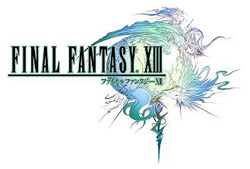 It seems the promise of Final Fantasy XIII on the Xbox 360 is a big “work in progress” as it’s not actually under development yet. Square Enix is fully ready to commit on a simultaneous release for Europe and North America but not every territory around the globe.
It seems the promise of Final Fantasy XIII on the Xbox 360 is a big “work in progress” as it’s not actually under development yet. Square Enix is fully ready to commit on a simultaneous release for Europe and North America but not every territory around the globe.
The reason is simple: there are just too many countries to perform language translations in the time of a release window. Final Fantasy, as many know, is very text heavy in terms of dialog and storyline. We’ve spoke at length about that in the gaming podcast which helps explain why certain countries get some releases of Final Fantasy at different times and why some sequels never make it out of Japan.
“We’re ready to start developing FFXIII for 360,” said Square Enix’s Shinji Hashimoto. “First, we will complete the game for PS3 in Japan, then begin localization for America and Europe while developing the 360 version simultaneously. The PS3 and 360 versions will be released at the same time outside of Japan — although, due to language and other conditions, the game may not be released simultaneously across territories.” (1up)
Their plan of attack seems solid and gives the PlayStation 3 a bit of an advantage in the Japanese market, but considering the lack of 360 presence in the land of the rising sun, this isn’t too surprising. What is surprising, still, is the concept of Final Fantasy XIII on the Xbox 360 at all!
When it comes to E3 announcements, letting the crowd know Final Fantasy XIII was arriving on Microsoft’s console was a positive shock to the system. It may not be simply because yet another Final Fantasy game is in the works but to prepare gamers for the idea that they don’t have to run out and invest in a PlayStation 3 just to play the next big RPG.
The value to the Xbox 360 is growing and the need to collect all the consoles is fading. End of an era?

 An expert has given testimony to the US House of Representatives Subcomittee on Commerce, Manufacturing, and Trade during its commencement on hearings on the “unauthorized intrusion” on Sony’s PlayStation Network and Qrocity service, stating Sony knew that their security software was dated and lacked any sort of firewall against hacking.
An expert has given testimony to the US House of Representatives Subcomittee on Commerce, Manufacturing, and Trade during its commencement on hearings on the “unauthorized intrusion” on Sony’s PlayStation Network and Qrocity service, stating Sony knew that their security software was dated and lacked any sort of firewall against hacking.